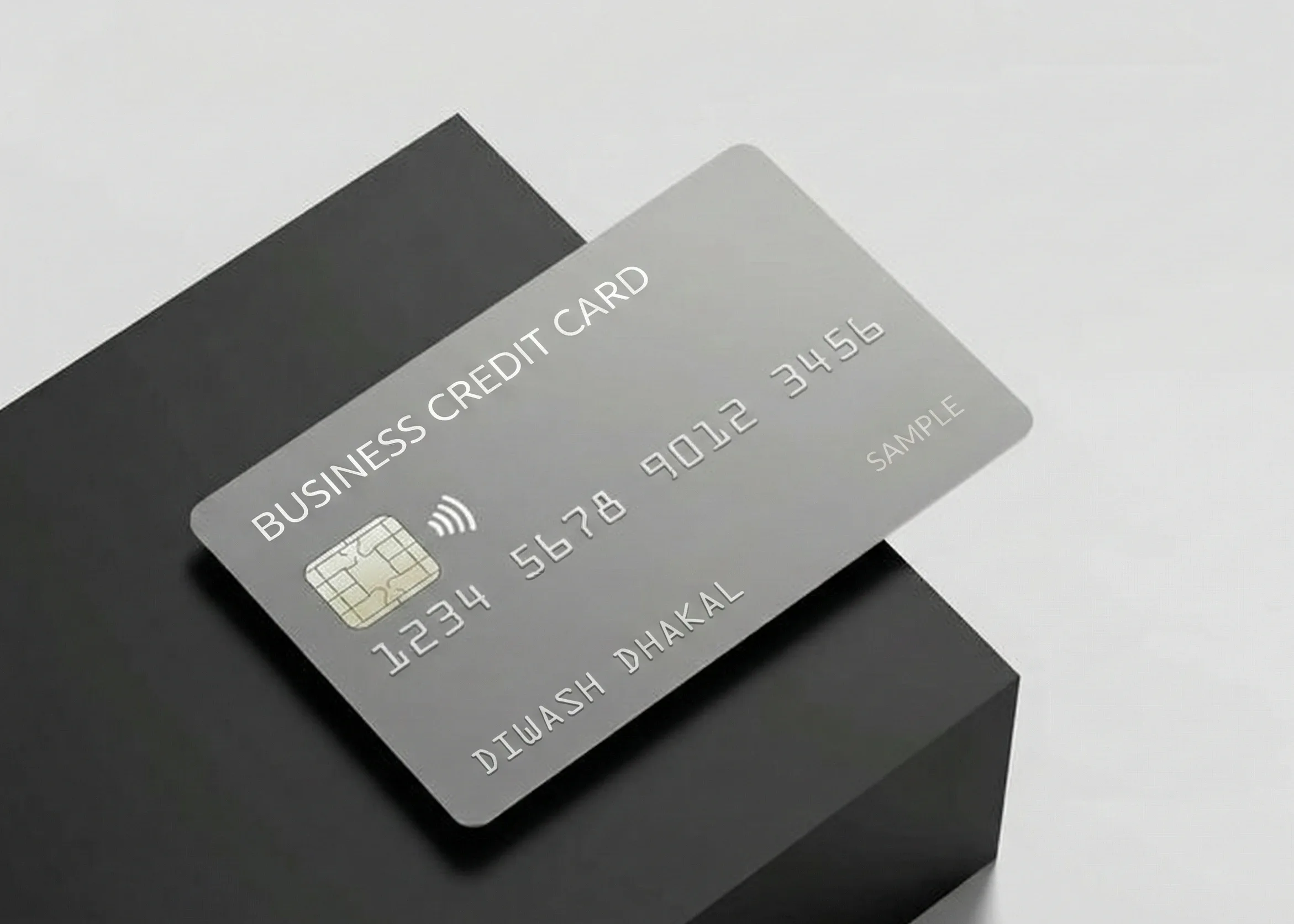Last Updated: December 16, 2025
Building credit is an important step for anyone seeking to establish a stronger financial foundation. A solid credit profile may help improve access to loans, credit cards, and even certain housing or insurance opportunities, depending on individual circumstances.
In 2025, with evolving lending standards and increasingly sophisticated financial products, understanding how to use credit responsibly is more important than ever. Mismanaging credit can have long-term consequences, so careful planning and informed decisions are essential.
For individuals starting from scratch or looking to rebuild past credit, the right credit card can serve as a practical tool to gradually improve creditworthiness while managing day-to-day finances effectively. Using credit responsibly over time may support positive credit history development, though results vary by person.
This guide provides strategies for selecting credit cards that may help build credit over time, explaining which features matter most and how responsible usage patterns can influence credit history. It is intended for informational purposes and is not a guarantee of specific results.
In addition to practical tips, it highlights several credit cards designed for beginners or those with limited credit experience. By understanding how different cards operate, which features to prioritize, and how to use them responsibly, readers can make informed choices that align with long-term financial goals.
For those interested in exploring additional credit options, our guides on first credit cards for beginners and credit card fundamentals offer further resources to strengthen understanding and support informed decision-making.
- Pick the right card: consider secured vs. unsecured, fees, and reporting to all three credit bureaus.
- Pay on time & stay under 30% utilization to demonstrate responsible credit use.
- Build consistent habits: monitor credit, maintain a mix of accounts, and track spending responsibly.
- Avoid common pitfalls: late payments, high balances, and opening too many accounts too quickly.
- Think long-term: steady, responsible credit use can unlock better financial opportunities and confidence.
Why Building Credit May Matter in 2025
Your credit history is more than just a numerical score; it can serve as a financial reputation that lenders, landlords, and even some employers may review. In 2025, maintaining a solid credit profile may help secure lower interest rates on loans, access a wider range of credit cards, and simplify rental or service applications, though outcomes vary by individual circumstances.
With economic uncertainties and rising costs, using credit responsibly may provide flexibility when managing finances, from everyday expenses to larger purchases. Responsible credit use over time can help demonstrate financial reliability, which may support better opportunities in the future, according to guidance on responsible credit behavior from the Consumer Financial Protection Bureau.
A higher credit score may improve the potential to qualify for premium credit cards offering rewards, higher limits, or travel benefits. It may also influence applications for auto loans, personal loans, mortgages, and small business funding. Results will vary depending on individual credit history and lender requirements.
For those building or repairing credit, understanding how responsible credit card use may impact credit scores can be a valuable tool in planning financial strategies. Guidance on avoiding credit card fees or reducing interest rates can offer additional insights for effective credit management.
Moreover, consistent credit-building habits may result in long-term advantages. Simple practices, such as making timely payments, keeping credit utilization low, and monitoring credit activity, can gradually support a positive credit history.
Even small improvements over time may help enhance financial confidence, making it easier to access better financial products in the future. Readers interested in rewards-focused options while building credit can also explore our guides on top cashback cards and high-limit credit cards for additional insights on potential credit expansion.

Tip: Good credit can save you money on loans and insurance.
Key Considerations When Selecting a Credit Card
Choosing a credit card to build credit involves more than simply getting approved. Several factors can affect how effectively a card may support long-term credit growth. Understanding card types, fees, interest rates, and reporting practices can help align your choice with financial goals.
Card Types: Secured vs. Unsecured: Secured credit cards typically require a refundable deposit, which often serves as the credit limit, making them more accessible for applicants with limited credit history. This approach may be suitable for individuals with limited or no credit history, as approval thresholds tend to be lower.
Unsecured cards, on the other hand, generally require a fair or good credit score for approval and do not require a deposit. Evaluating the trade-offs between upfront deposits and potential credit-building opportunities is important. For beginners, considering cards designed for new users may provide practical options.
Fees and APR Considerations: Annual fees, late fees, and foreign transaction charges can affect the overall cost of a credit card. Some cards waive fees entirely, which may be beneficial for someone building credit without incurring unnecessary expenses.
Understanding the APR is also important, particularly for those who might carry a balance, as outlined in federal guidance on credit card interest rates and fees. While paying off balances in full each month is recommended to avoid interest, knowing the rates can help manage potential costs. Our guide on avoiding credit card fees and penalties offers practical tips for minimizing fees.
Reporting Practices: How a credit card reports activity to the three major credit bureaus (Experian, Equifax, and TransUnion) can impact how effectively it supports credit building. Cards that report consistently may help establish a credit history over time.
Confirming this reporting feature before applying can make a meaningful difference in credit-building progress. For readers interested in rewards while building credit, reviewing our comparison of top reward cards can provide additional insights on potential benefits.
How to Use a Credit Card Responsibly
Responsible credit card usage is essential for building a positive credit profile. Making payments on time, keeping balances low, and using cards thoughtfully can influence credit reports over time. Small, manageable purchases that are paid off consistently may help demonstrate effective credit management, though results may vary by individual.
Regularly reviewing your credit reports through AnnualCreditReport.gov can help identify discrepancies or unusual activity that could impact your credit history, as explained in the FTC’s official guide to free credit reports. Staying informed about your accounts supports responsible use.
Maintaining low credit utilization, generally below 30% of your available credit, may support a healthier credit profile. Spacing out applications and avoiding multiple new accounts in a short period can help prevent temporary score reductions due to inquiries.
Using credit cards consistently while staying within budgeted limits may signal reliability to lenders. Diversifying credit types, such as adding an installment loan after establishing a credit card, may contribute to a more balanced credit profile over time.
For additional guidance on maximizing credit tools, readers can explore high-travel insurance credit card options or business credit card strategies to support broader financial planning.

Tip: Set up autopay to never miss a payment.
Top Credit Cards to Consider for Building Credit in 2025
Choosing the right credit card can influence how effectively you build credit over time. While there is no guaranteed “best” card, several options are designed to potentially support credit growth for beginners or those working to improve their credit history. Individual results will vary depending on credit profile and usage.
Secured credit cards generally require a refundable deposit, which may reduce risk for issuers and provide easier approval for applicants with limited credit history. Some secured cards may also offer rewards features, such as cashback or points, which can provide small incentives when used responsibly.
Unsecured credit cards are another option, often intended for applicants with a fair or improving credit score. These cards usually do not require a security deposit but may have stricter approval requirements.
Cards that report consistently to all three major credit bureaus (Experian, Equifax, and TransUnion) may help support credit-building efforts over time, which is a core factor in how credit scores are calculated. Confirming this reporting feature can be an important step when selecting a card.
Some credit cards also provide tools such as free credit score access, automatic alerts, or spending insights, which can help users track progress and maintain responsible usage habits.
For those comparing options, guides on first credit cards for building credit or cards commonly used by high-net-worth individuals can offer additional insights into features and benefits that may align with long-term financial goals.
Readers may also consider reward-focused cards as supplementary options once their credit profile strengthens. Ultimately, choosing a card that matches financial habits, spending patterns, and likely approval can help make the credit-building process more manageable and sustainable.
How These Cards May Support Credit Growth
Credit-building cards can serve as practical tools for establishing a financial record by creating ongoing payment and account history. Consistent reporting to the major credit bureaus (Experian, Equifax, and TransUnion) is one of the primary ways these cards may influence a credit profile over time.
By demonstrating timely payments, low credit utilization, and regular account activity, cardholders may develop a pattern of responsible credit management that lenders could view favorably. Individual outcomes will vary based on personal credit history and usage.
Some cards offer automatic credit line increases or the option to transition from a secured to an unsecured card after a period of responsible use. While results are not guaranteed, these features may provide flexibility and the potential to expand available credit without requiring additional deposits.
Many cards also include financial management tools, such as spending trackers or payment reminders, which can help cardholders stay organized and avoid missed payments. Additional strategies, including avoiding fees and penalties or lowering interest rates, can further support effective credit management.
Using credit cards responsibly also involves maintaining balances below recommended utilization thresholds. Keeping credit usage moderate while paying in full each month may demonstrate prudent financial habits.
Regularly reviewing credit reports through AnnualCreditReport.gov can help identify discrepancies early, allowing corrections before they negatively affect a score. Over time, consistent and responsible use of credit cards may help support a stronger credit record and potentially open access to better financial opportunities.
Smart Habits to Build Credit Responsibly
Building credit effectively involves more than choosing the right card. Practicing consistent, responsible habits can help support a positive credit trajectory over time.
Making payments on time is often one of the most influential factors, as payment history typically represents a significant portion of a credit score. Even minor delays can temporarily affect a score, so setting up automatic payments or reminders may help reduce the risk of missed payments.
Maintaining low credit utilization, generally below 30%, can contribute to a healthier credit profile. Making manageable purchases that can be paid in full each month may help prevent high balances while demonstrating responsible credit management.
Spacing out credit applications and avoiding frequent new accounts can help prevent temporary declines from multiple inquiries. For additional strategies, guides on high-limit credit cards or reward comparisons may provide insights on features that complement responsible use.
Regularly monitoring credit reports can help identify errors or potential fraud early. Maintaining a mix of credit types, from credit cards to installment loans, may support a more balanced profile that could be viewed positively over time.
Additionally, keeping older accounts open can lengthen the average credit history, which may contribute to scoring models. Ultimately, consistent and thoughtful management of credit cards and other credit accounts can gradually help support a stronger and more reliable financial reputation.
Popular Credit Cards for Beginners in 2025
For individuals starting to build credit, certain credit cards may be more accessible while providing key credit-building features. Secured credit cards are often practical for beginners, as they typically require a refundable deposit that serves as the credit limit.
This structure can allow applicants with limited or no credit history to gain approval more easily. Some secured cards may also offer small rewards, providing users with benefits while they develop responsible credit habits.
Unsecured credit cards may be available for applicants with fair or improving credit scores. These cards generally do not require a security deposit and may include tools such as mobile apps, spending trackers, or free credit score access.
While approval requirements for unsecured cards are often stricter, they may provide more flexibility and higher limits over time. Readers interested in first steps for building credit can review guides on first credit cards for beginners or credit card fundamentals.
Using a card regularly, while keeping balances low and paying on time, may help demonstrate responsible credit use to lenders. Over time, this pattern can support stronger credit scores and potentially lead to eligibility for higher-limit or reward-focused cards.
Maintaining patience and consistent habits, such as regularly monitoring your credit report via AnnualCreditReport.gov, can also help identify errors early and ensure that the card contributes positively to your credit profile.
Common Pitfalls That May Affect Credit Building
Late payments
Missing due dates can negatively impact your credit score. Always pay on time.
High credit utilization
Using too much of your available credit can lower your score. Keep it under 30%.
Opening multiple accounts too quickly
Too many new accounts at once can signal risk to lenders. Space out applications.
While credit cards can be effective tools for building a strong financial foundation, misuse or oversight may slow progress. Late payments are often one of the most significant factors that can negatively affect a credit history.
Even a single missed payment may be reported to credit bureaus and could remain on the record for several years. Setting up reminders or automatic payments can help reduce the likelihood of missed deadlines.
High credit utilization is another factor that may impact scores. Consistently carrying large balances relative to the available credit limit may signal risk to lenders.
Keeping a utilization ratio below 30%, or even lower, may support a healthier credit profile. Additionally, opening multiple accounts in a short period can trigger inquiries that temporarily reduce scores. Strategically spacing out applications may help minimize this effect.
Other potential pitfalls include ignoring smaller fees, such as late payment charges or foreign transaction costs, and closing older accounts too soon, which may reduce the average length of credit history.
Staying informed about your credit report through AnnualCreditReport.gov can help identify mistakes or unusual activity that could impact your credit progress. Guides on avoiding fees, penalties, or high interest rates may provide actionable strategies to mitigate these risks.

Tip: Keep credit utilization below 30% to avoid lowering your score.
Long-Term Benefits of Building Credit
Building a solid credit profile can offer benefits beyond immediate borrowing opportunities. Over time, maintaining a strong credit history may influence loan approvals, interest rates, and credit card offers, though results vary based on individual circumstances.
While outcomes differ for each person, consistently using credit responsibly can improve the likelihood of access to more favorable financial products.
A reliable credit profile may also support everyday financial activities, such as renting an apartment or obtaining competitive insurance rates, which are directly influenced by credit reports and scores. Regularly monitoring credit reports and scores can help maintain awareness of potential issues and allow corrective action if needed.
Using financial tools, such as budgeting apps or notifications from card issuers, can make it easier to track spending, avoid late payments, and maintain healthy credit utilization.
Beyond practical benefits, developing strong credit habits may help build financial confidence. Understanding how credit works and making informed decisions can reduce stress and provide flexibility for larger financial goals, including homeownership or small business funding.
For additional insights on credit options that may align with growth strategies, readers can explore reward and perk-focused cards or cards offering travel protections. Ultimately, consistent and informed credit management can serve as a foundation for broader financial opportunities over time.
The financial benefits of a strong credit profile may accumulate over time, providing greater confidence and stability. This ongoing practice of responsible credit management is one of the most valuable investments in your financial health.
The Bottom Line
Building credit in 2025 is a gradual process that benefits from consistent, responsible habits. Selecting the right credit card, making payments on time, keeping balances low, and regularly monitoring your credit report can collectively help support a stronger financial profile over time.
Individual results will vary, but understanding how different credit tools work and using them thoughtfully may provide greater flexibility for future loans, credit card offers, or other financial opportunities. Patience, discipline, and informed decision-making are important factors that can contribute to long-term credit growth and improved financial confidence.









better to use phone pay rather than cards ????